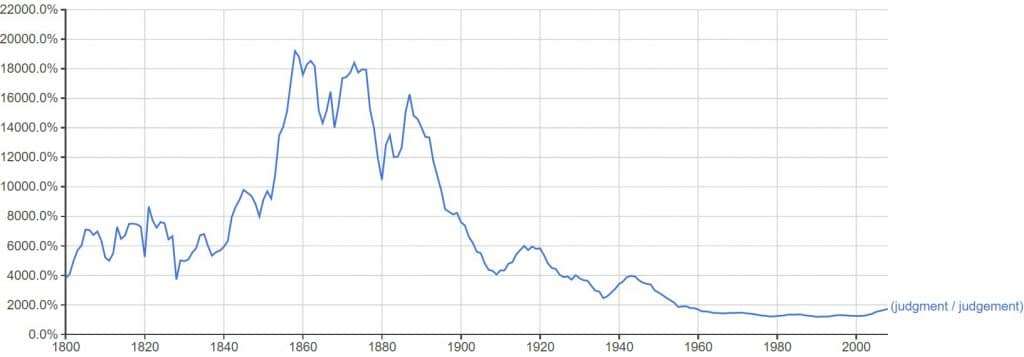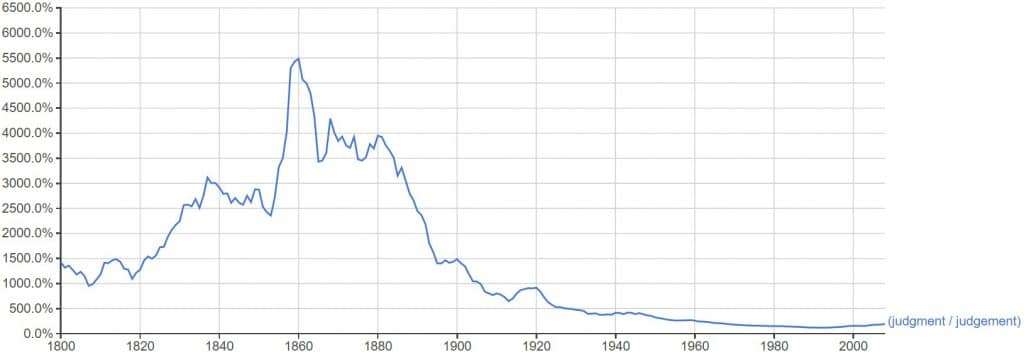The Volokh Conspiracy
Mostly law professors | Sometimes contrarian | Often libertarian | Always independent
Judgment or judgement?
A few days ago, I wrote about a document sent to Google purporting to be a court's "judgement entry" - but which the judge, when I contacted him, told me that he had never entered. (The person who appears to have sent the document to Google claims that the document was just a proposal of his, but that's not how it was framed when it was sent.)
This then led to a discussion in the comments about whether the spelling "judgement" was a giveaway, because "judgment" is the standard form. And that in turn led to the following from a commenter:
Judgement is the accepted spelling in British English. Webster first recorded the misspelling of judgment in his 1828 American Dictionary of our English Language, and Americans have been misspelling most of our true English words since then. If you're an avid reader, you've likely see it spelled two different ways across various sources and not many writers are sure when to use which one. There is no demonstrable difference of sense or function between them, meaning both spellings of the word can be used interchangeably. I really do not like the way that judgment appears on the page. I much prefer judgement, but if you like judgment, you won't be judged in the UK or the US.
Here's my sense of the matter.
1. In American English, "judgment" vastly predominates. "Judgement" is listed in dictionaries (see, e.g., the American Heritage Dictionary), but "judgment" has been more than 10 times more common in recent years. The ratio used to be even more lopsided:

(I love Google Ngrams; click here to see a larger image.)
2. In American legalese, "judgment" even more sharply predominates. Looking just at Aug. 1 to Aug. 15 of this year, "judgment" wins 5486 to 91. When the difference is so lopsided, using the minority spelling ("judgement") will be jarring to many readers, and will make many readers think less of you (whether rightly or not).
3. In British English, "judgment" still predominates, but not by as much - in recent years, "judgment" has been slightly less than twice as common as "judgement":

4. According to the Oxford English Dictionary, "judgment" was the dominant spelling in British English generally from the late 1600s until the 1800s, and remains the dominant spelling when referring to court decisions:
The word is found in spellings with -dgm- from the early 16th cent., and by the late 17th cent. judgment had become the prevailing spelling, although judgement was still commonly found. Kersey (1702) is an unusually early example of a dictionary in which the headword form was given as judgement. During the 19th cent. the form judgement gained in frequency in British contexts, and is now the usual spelling in general British use, but judgment has remained the standard spelling in British legal contexts when used to refer to a judicial decision (see sense 8), as well as in U.S. usage.


Show Comments (0)